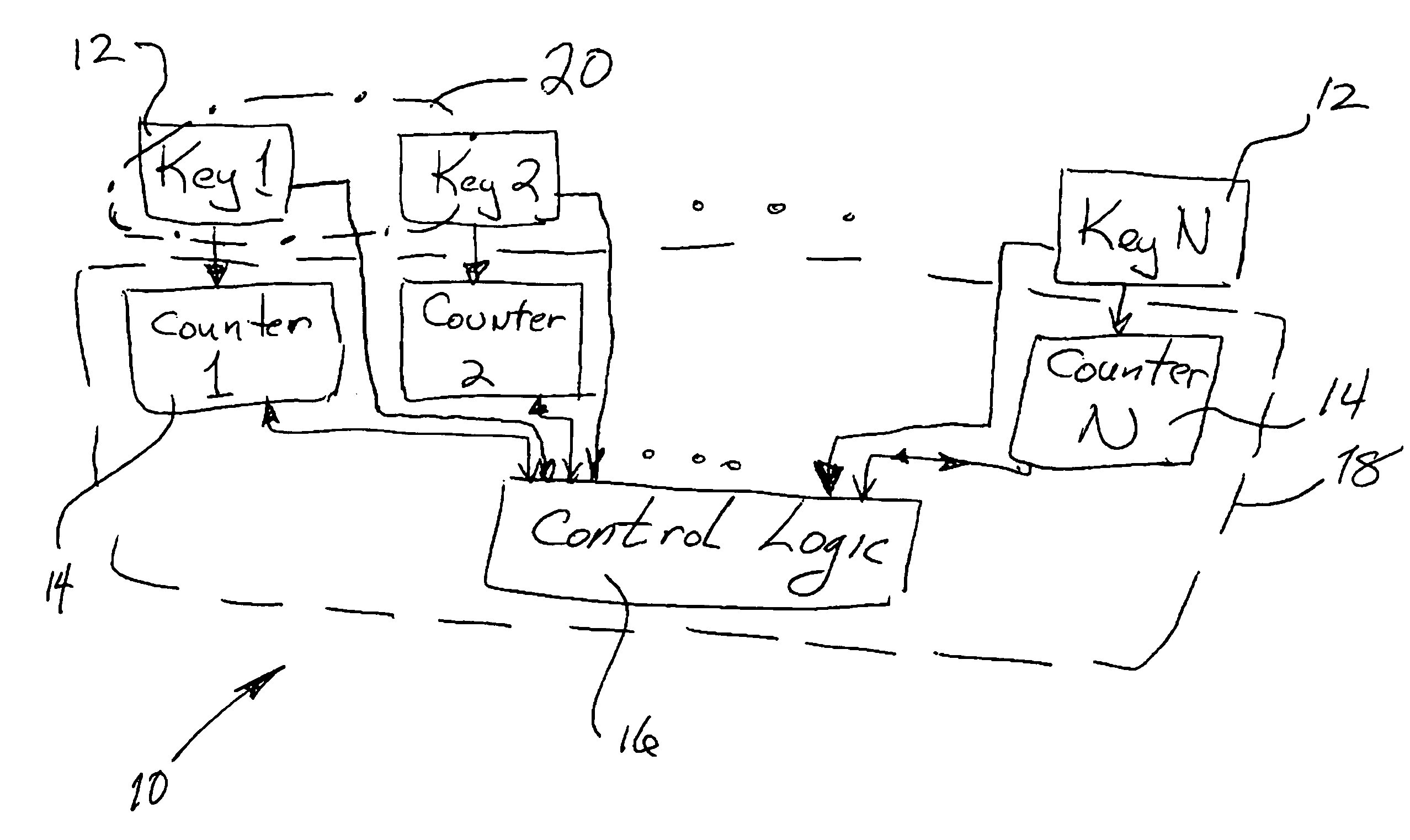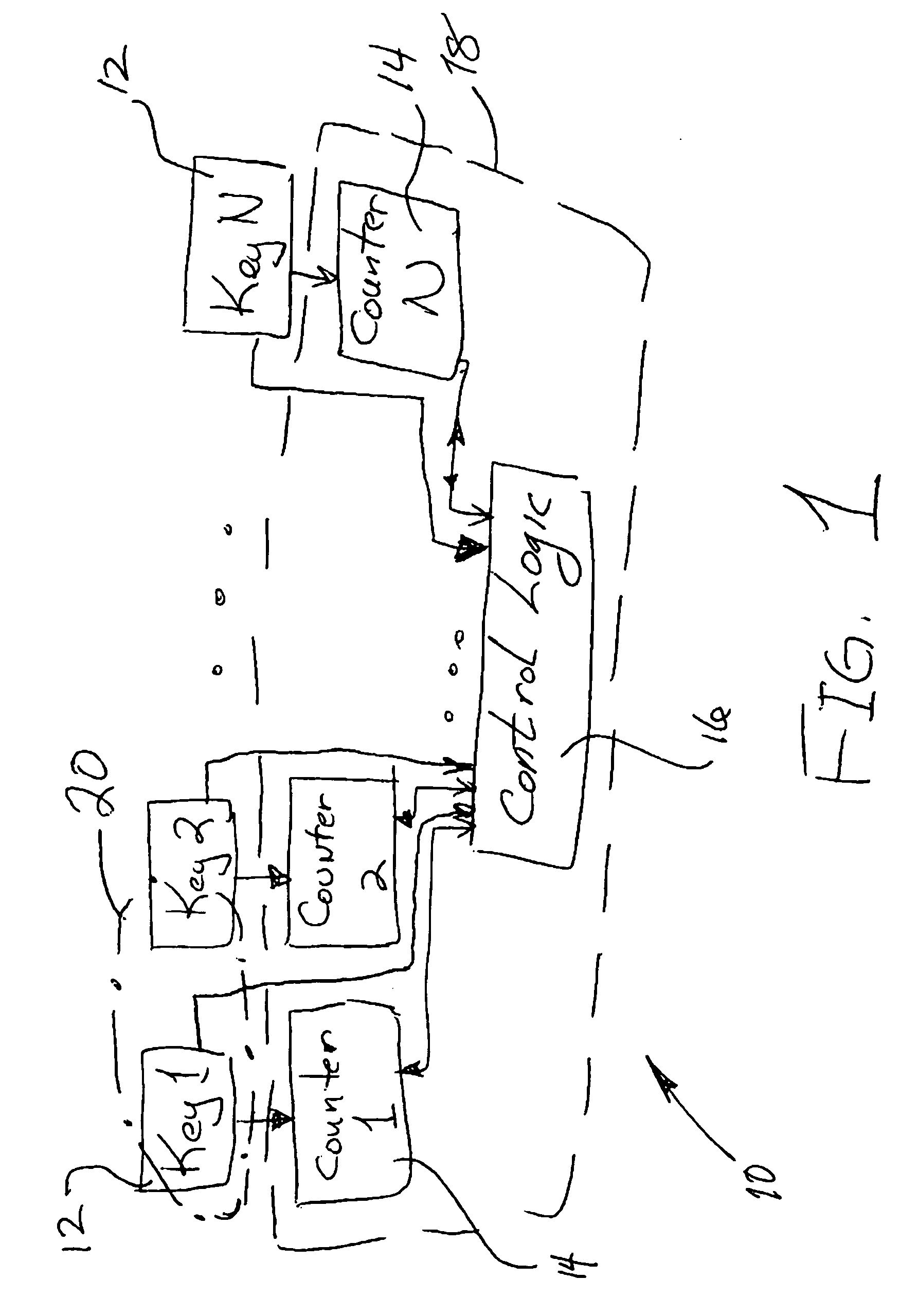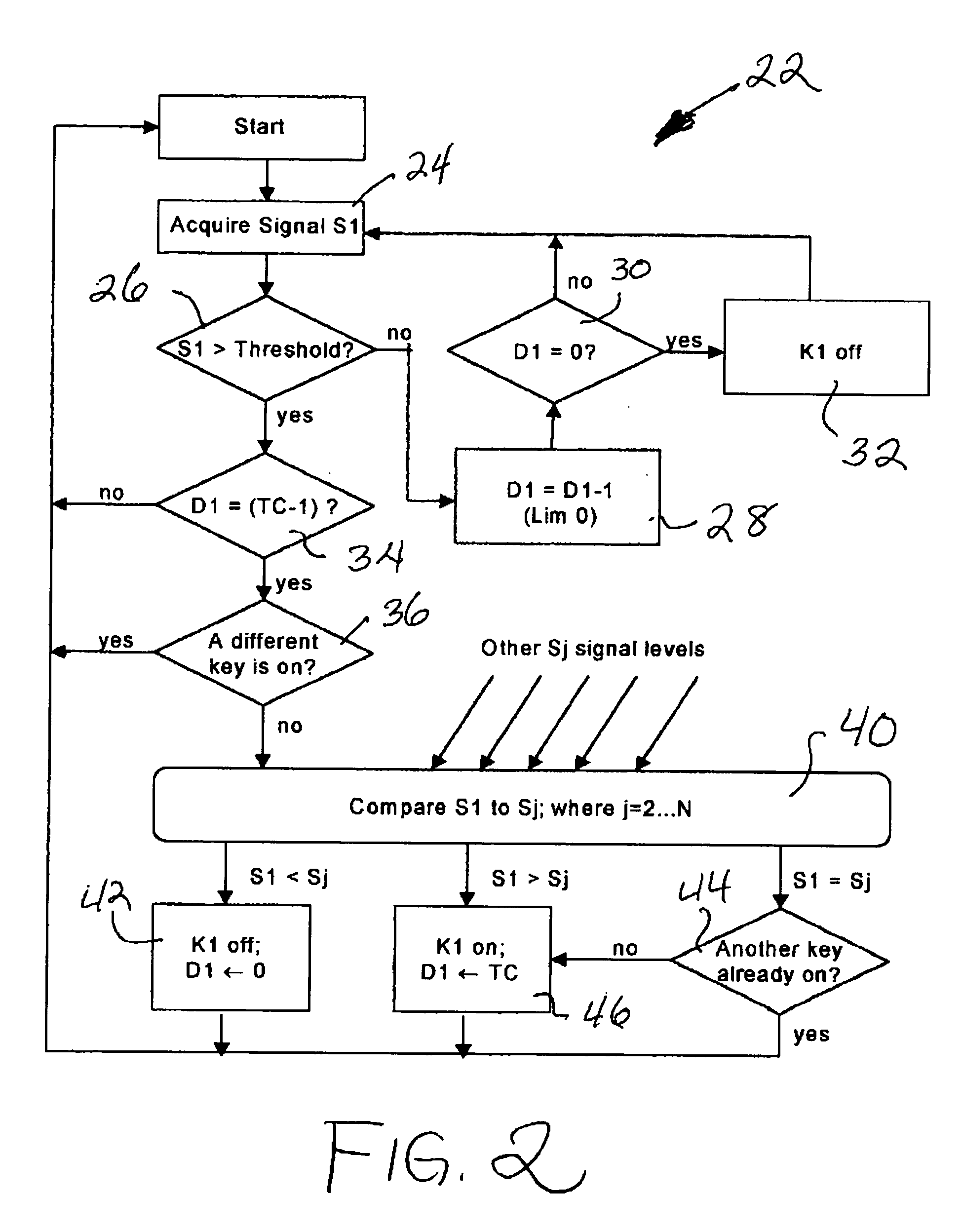Keyboard with reduced keying ambiguity
a keying ambiguity and keying technology, applied in the field of keyboards with reduced keying ambiguity, can solve problems such as keying ambiguity problems
- Summary
- Abstract
- Description
- Claims
- Application Information
AI Technical Summary
Problems solved by technology
Method used
Image
Examples
Embodiment Construction
, the reader may be aided by noting definitions of certain words and phrases used throughout this patent document. Wherever those definitions are provided, the reader should understand that in many, if not most instances, such definitions apply to prior, as well as future uses of such defined words and phrases. At the outset of this Description, one may note: the terms "include" and "comprise," as well as derivatives thereof, mean inclusion without limitation; the term "or," is inclusive, meaning and / or; the term "non-bistable key" is used to describe a capacitive, piezoelectric, or other non-electro-mechanical device having an output signal responsive to an extent of coupling between a user and the key; the term "user" is most commonly used to designate that portion of the user, e.g., a finger, brought proximate a key in order to activate it, but "user" also includes any other handheld implement, such as a stylus, pen or the like, that a person could employ to actuate a key; the te...
PUM
 Login to View More
Login to View More Abstract
Description
Claims
Application Information
 Login to View More
Login to View More - R&D
- Intellectual Property
- Life Sciences
- Materials
- Tech Scout
- Unparalleled Data Quality
- Higher Quality Content
- 60% Fewer Hallucinations
Browse by: Latest US Patents, China's latest patents, Technical Efficacy Thesaurus, Application Domain, Technology Topic, Popular Technical Reports.
© 2025 PatSnap. All rights reserved.Legal|Privacy policy|Modern Slavery Act Transparency Statement|Sitemap|About US| Contact US: help@patsnap.com



